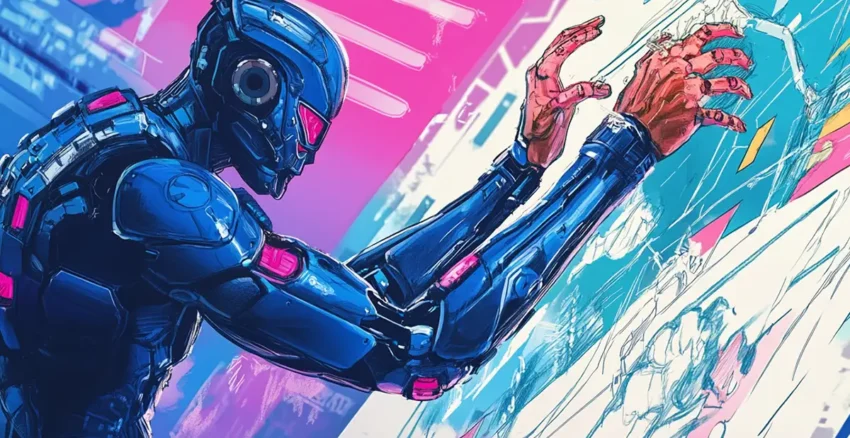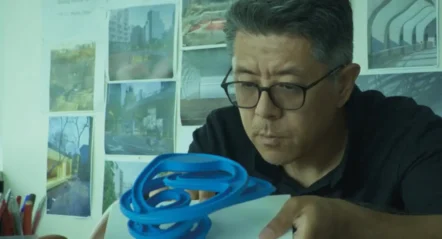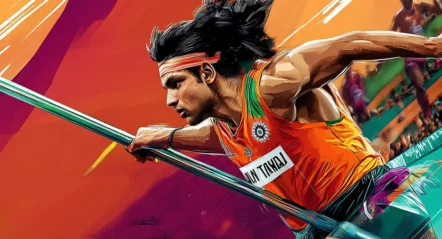AI and the Comic Book Industry: Navigating Innovation and Tradition
Artificial Intelligence (AI) is increasingly influencing the comic book industry, offering new tools for creation and distribution while also raising concerns about authenticity and the role of human artists.

AI as a Creative Tool
AI technologies, particularly generative text-to-image models, are being utilized to streamline the comic creation process. These tools can rapidly generate visual content from textual descriptions, allowing artists and writers to experiment with different styles and concepts quickly. For instance, AI can assist in creating backgrounds, character designs, and even entire panels, thereby accelerating production timelines and reducing costs. This is especially beneficial for independent creators and small publishers who may lack extensive resources.
Challenges and Controversies
Despite the advantages, the integration of AI into comic book creation has sparked significant debate. Prominent figures in the industry express concerns about the potential devaluation of human artistry. Jim Lee, Chief Creative Officer at DC Comics, has publicly stated that using AI “robs artists of creative joy,” emphasizing the irreplaceable value of human creativity in the artistic process. He argues that the personal satisfaction derived from traditional artistic methods cannot be replicated by AI-generated content.
Additionally, there are apprehensions regarding the ethical implications of AI-generated art. Critics argue that AI models are often trained on existing artworks without proper attribution or compensation to the original creators, raising questions about intellectual property rights and the potential for exploitation.
Market Reception and Consumer Preferences
The reception of AI-generated comics among audiences is mixed. Some readers appreciate the novelty and efficiency AI brings to comic creation, while others feel a disconnect from works that lack the human touch. Surveys indicate that while there is interest in AI-assisted comics, many consumers prefer works that are clearly created by human artists. This suggests that while AI can be a valuable tool, it may not fully replace the demand for traditional, hand-crafted comics.
Industry Response and Adaptation
In response to these challenges, various stakeholders in the comic book industry are exploring ways to integrate AI responsibly. Some publishers are implementing policies to ensure that AI-generated content is clearly labeled, maintaining transparency with their audiences. Others are investing in training programs to help artists incorporate AI tools into their workflows without compromising their creative integrity.
Furthermore, initiatives are underway to develop ethical guidelines for AI use in the arts, aiming to balance innovation with respect for creators’ rights. These efforts seek to foster an environment where AI can enhance the creative process without undermining the value of human artistry.
As AI continues to evolve, its role in the comic book industry will likely expand. However, the future of comics will depend on finding a harmonious balance between technological advancement and the preservation of traditional artistic practices. By addressing ethical concerns and maintaining a commitment to creative authenticity, the industry can navigate the complexities of AI integration and continue to produce compelling narratives that resonate with audiences worldwide.
Inflect.in — Your daily dose of stories that inform, inspire, and ignite curiosity. Follow us for more!
Inspire
Latest Post

AI in Healthcare: Smarter, Faster, and Accessible

Is Co-Sleeping Safe for Babies? Pros, Risks,

Pomegranate Benefits: Why Eating Anar or Drinking

Ma Yansong: Shaping the Future of Architecture

AI in Healthcare: Smarter, Faster, and Accessible

Is Co-Sleeping Safe for Babies? Pros, Risks,

Pomegranate Benefits: Why Eating Anar or Drinking








